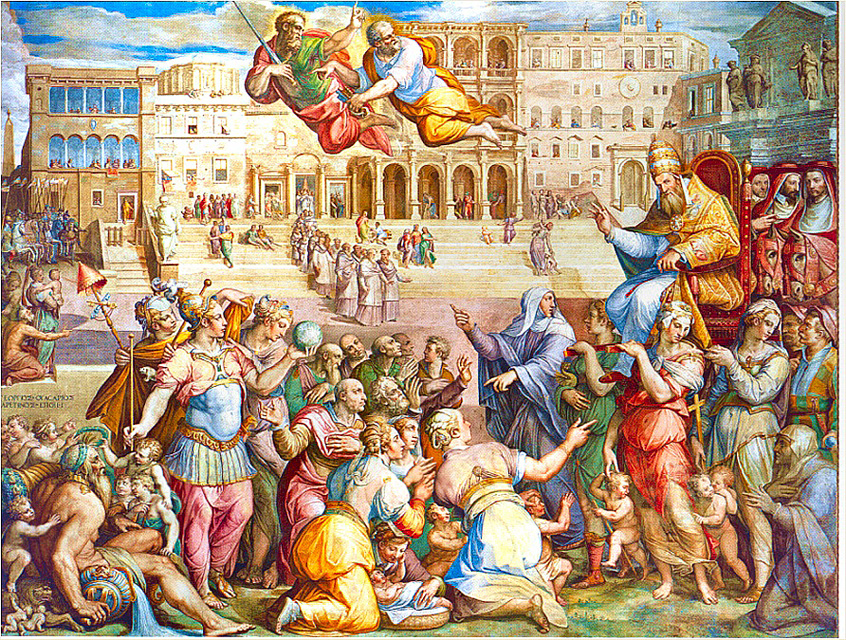Many years ago, when my husband and I were involved in Worldwide Marriage Encounter, we served as Executive Couple for the Diocese of Birmingham, Alabama. During one of the sessions with the team couples of the diocese, we were presented with T-shirts imprinted with: “Wait for us, we’re your leaders.” As you can imagine, it was met with peals of laughter, but the message it conveyed comes to mind amid the current negative chatter about synodality.
According to the Holy See, “synodality” refers to “the active participation of all the faithful in the life and mission of the Church.” In seeking to hear from the greater Catholic community, Pope Francis is reminding us that the Holy Spirit is at work, not only in the lives of people who are in leadership positions, but in the hearts and minds of the entire Church. The more people participate, the more enlightened the process can be, which makes listening an imperative.
Synodality does not negate the role of the hierarchical Church; their role remains constant as the authority, evidenced by the stand Pope Francis took against the Synod of Bishops in Germany, who called for the blessings of same-sex unions and the priestly ordination of women.
Church history and the lives of the saints are a reminder that reform often comes from people with little official standing in the Church. Perhaps the most notable among them is St. Francis of Assisi, one of the Church’s most beloved saints whose footprint on the Church is immeasurable. St. Catherine of Siena also comes to mind. In 1376, she convinced Pope Gregory XI to return to Rome from Avignon, France, where popes had fled because of factional violence.
Not every doctor of the Church was a theologian, priest or bishop. Along with St. Catherine, doctors of the Church include Sts. Teresa of Ávila, Thérèse of Lisieux and Hildegard of Bingen, whose teachings have echoed through the ages.
It seems that God has a penchant for taking the most unlikely people and raising them to the heights of sanctity where they shine long after their lives on earth cease.
A modern person who comes to mind is Jérôme Jean Louis Marie Lejeune (1926-1994). A French pediatrician and geneticist, he is best known for discovering the link of diseases to chromosome abnormalities, most especially the link to Down Syndrome. As Lejeune used to say, “Technique is cumulative, but wisdom is not. We can accumulate technical knowledge, and unfortunately not accumulate the wisdom that will help us know how to use this growing technique.”
In speaking out against abortion and the practice of interrupting a pregnancy in the case of abnormal development, Lejeune told his wife, “I’ve just talked myself out of the Nobel Prize.” Now that his cause for canonization has begun, it looks as though he may one day be awarded a much greater prize.
Many seemingly ordinary people in the pews have risen to the ranks of sainthood. Louis and Zélie Martin have been canonized, yet in reading a biography of their lives, one can’t help but be impressed by how average and ordinary they appear as they went about the work of parenting their daughters, one of whom is St. Thérèse, the Little Flower. Their contributions are recognized posthumously, but we can’t help but wonder what they might have added to the conversation had they been invited to dialogue with other Catholics of their day.
The long-standing history of the Church should allow current naysayers to take comfort in synodality, knowing that the Holy Spirit is active within the Church just as Jesus promised. Therefore, we must be willing to open our hearts and minds to the Spirit of God that cannot be constrained within a set group of people. Had that happened in the past, we might have closed the door to awakenings such as the abolition of slavery, and respect for life in all its forms and stages, and yes, even climate change.
When we converse with voices that only agree with our own, evangelization is thwarted. Unfortunately, our world has become so divisive that dialogue is arrested before it even begins. To include voices other than our own, rather than demonize them, is a sign of Godly wisdom.
Jesus ate with tax collectors and sinners and dined at the homes of Pharisees. This may be what inclined St. Frances de Sales toward gentleness, warning those he sent forth that, “A teaspoon of honey will catch more flies than a barrel of vinegar.”
Let us pray that all who bear the name “Christian” become busy bees for good, making and spreading honey in a world that too often seems to be drowning in vinegar. Only then will people of every race, religion, and ideology “taste and see the goodness of the Lord” (Ps 34:9), not because of what we say, but because of who we’ve become.

